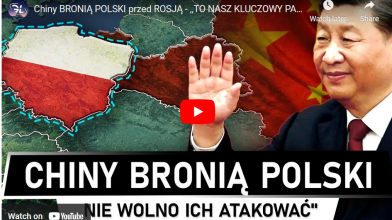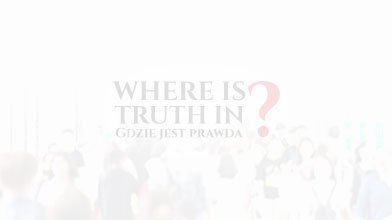De donde llegamos y donde vamos?
De donde Llegamos a donde Vamos? (Aztecs of Mexico)
Where are we coming from and where do we go?
12/7/23
Recent titles on Social media:
Re Publika (rzecz pospolita) on the Baltic-Black Sea Bridge?
https://www.youtube.com/watch?v=zehszoRYj-Q&t=254s
Will America defend Poland?
https://www.youtube.com/watch?v=kST-2R5lTgM&t=56s
Poland's Grand Strategy in the Times of Chaos
https://www.youtube.com/watch?v=Ju2v_TvvWzM&t=1598s
Are we at risk of war with Russia?
https://www.youtube.com/watch?v=WErCe5d4nbc&t=1143s
Germans want to take over the Polish Army?
https://www.youtube.com/watch?v=PqtwadFs8Ks
indicate the amount of anxiety getting to the surface of social media generated by the tension caused by Polish tightened international situation: at war with Russia, deep problems with Ukraine vis-a-vis Poland, problems with Germany and problems with Czechs, not talking about EU
On one hand the titles of concern and fear:
Will America defend Poland?
Are we at risk of war with Russia?
Germans want to take over the Polish Army?
in which we, Poland, act as a passive nation against our traditional enemies, hoping that America will save us from the consequences of our geographical location.
The following conversation between geopolitical specialists from Strategy and Future shows how deeply and inextricably Polish strategic thought is based on and depends on Western help.
On the other hand, while waiting for American salvation, we dream of a glorious Polish-Ukrainian future on the Baltic-Black Sea bridge in the context of Poland's Grand Strategy in times of Chaos.
Let's see how our leading geopoliticians construct this strategy:
Hmmm, the basic two guidelines of Polish policy, according to Dr. Bartosiak, are:
1. Preventing Russia from becoming part of Europe so that it cannot decide about the "architecture" of Europe's security;
2. To break the economic dualism on the Łaba, to deal with the developmental difference between Poland and the West.
A few comments:
In the past, "breaking" dualism was called by Stalin, "catching up with and overtaking" the West. Well, we know how it ended. Breaking down dualisms is not the best method because it takes attention away from the common good. For example, since the introduction of neoliberalism in Poland, the number of newborns has decreased significantly because social efforts have been focused on breaking this dualism rather than developing the family as the social good.
Regarding the first point, I understand the desire to prevent Russia from cooperating with the European system, because it is armed to the teeth and can force whatever it wants. Well, but if we imagine this happy day when Russia and the European West are disarmed, would we also be against letting Russia into Europe?
Or maybe let's combine the process of disarming Russia with the process of disarming the European West so that our entire Europe becomes one peaceful whole in which no one is or feels threatened? How to do it?
Let's listen further
Budzisz's analysis is based on the consequences of the basic assumption of Polish policy, which is to keep Russia away from "Europe". Therefore, at this point we are thinking about how long it will take before Russia is ready to militarize and take further steps towards Europe, and this can only be done by pacifying Poland in any possible way. This argument is repeated in relation to Eastern Europe, or rather north-eastern Europe. The entire complexity of the subsequent discussion is the result of this one assumption of Polish policy.
What would happen if we stopped being an obstacle to Russia's approach to "Europe"? Are we not the main source of tension in Europe precisely because we constitute an obstacle to, I must admit, the natural movement of attraction between the West and the East? This is where the subsequent problems come from, starting with the decision to be an obstacle to the natural flow of attractions? Couldn't we become its reinforcement instead? And make a living from it?
At 24:00 Budzisz introduces the fear that Russia may escalate at some point and therefore a deterrence system must be created. I think it is our fear, not the Russians, that causes us to create "deterrence systems", which in turn are interpreted by them as offensive systems. And so on.
I will quote one more conclusion of Bartosiak, which he reaches by continuing Budzisz's thinking. He envisioned the idea of fortress "Europe", which naturally keeps Russia outside due to the civilizational "difference in values". And then he says that such a fortress "Europe" will serve the Polish security function as our Polish values are similar, unlike Russian values to European ones.
So once again we are waiting for someone who can defend us, because we clearly cannot cope on our own. Why can't we do it? Budzisz explains at 35:34 that we appeal to Europe because our country is not functional! So Poland's Grand Strategy in times of Chaos is nothing more than a distraction from our lack of responsibility for ourselves.


